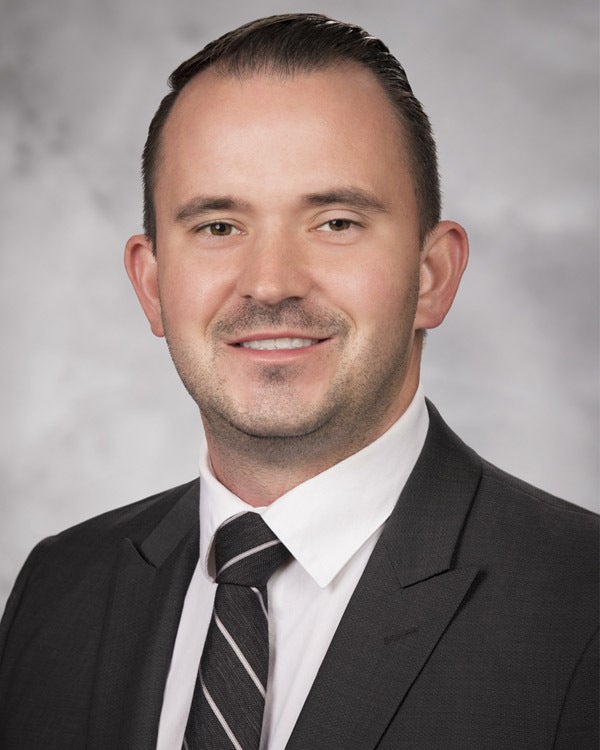Joshua Payne, MD, is a board-certified general surgeon with Trinity Health IHA Medical Group, General Surgery – Livonia. He received his medical education from The Ohio State University College of Medicine and completed his residency training at Trinity Health Oakland hospital. He completed a Surgical Critical Care fellowship at Henry Ford Hospital.
Dr. Payne recently shared his answers to common questions that patients and members of the public have about hernias and robotic hernia surgery. 
Q: What causes a hernia?
Dr. Payne: A hernia usually occurs in your abdomen or groin, when one of your organs pushes through the weakened muscle or tissue that contains it. Hernias can affect people of all ages —including babies and toddlers.
Q: What are the signs and symptoms of a hernia?
Dr. Payne: Hernias can look like a bulge that often comes and goes during different physical activities or body positions. Hernias may or may not cause symptoms, such as discomfort or pain.
Q: Is there a medical urgency to address a hernia if you have one?
Dr. Payne: Yes, if the hernia is not reducible (able to manipulate the organ back into place) or if it feels firm, there is urgency to see a physician. Also, if the area around the hernia changes color or is painful, see a physician right away.
Q: Is surgery always the solution for a hernia or are there other treatments?
Dr. Payne: The only definitive treatment for a hernia is surgery. An abdominal binder, or jock girdle, may help provide support.
Q: What are the benefits of robotic hernia surgery versus traditional surgery?
Dr. Payne: Robotic surgery allows for a smaller incision, less pain, shorter hospital stay and a lower complication rate.
Q: What can patients expect in terms of recovery time and outcomes after robotic surgery?
Dr. Payne: Patients can expect a quicker recovery and a faster return back to their everyday lives, as compared to traditional surgery. However, robotic surgery still requires a lifting restriction for up to six weeks. Your physician can tell you if you are a candidate for robotic surgery.
Q: How can someone connect with you to schedule an appointment?
Dr. Payne: To schedule an appointment, please call Trinity Health IHA Medical Group, General Surgery – Livonia at 734-655-2692. I work alongside a team of experienced physicians including Roger Ramcharan, MD, PhD, and Wendy Roberts, MD, who are also available to offer the care you need.





